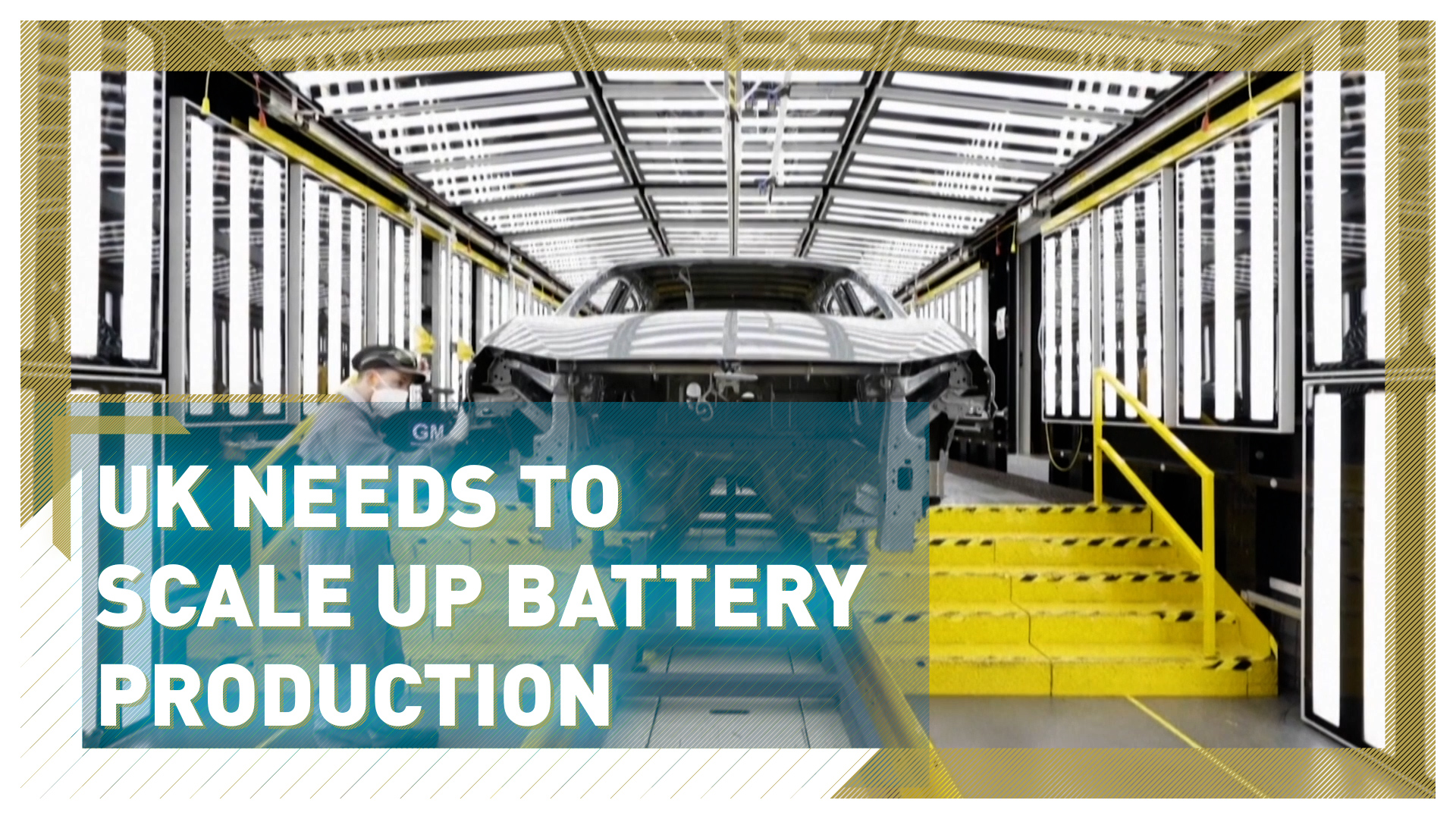02:59

At the heart of any plan to decarbonize the roads is battery production. Electric vehicles cannot run without them and yet they come with their own environmental impact.
The UK will host the COP26 United Nations climate summit in a few days' time. It wants the world to commit to new sets of Nationally Determined Contributions (NDC) – essentially roadmaps that add details to the commitments made by the signatories of the Paris Climate Agreement in 2015.
The country has announced more details of its own NDCs in the build up to the Glasgow conference, in the hope that others will follow.
Part of the plan includes a ban on the sale of new fossil fuel cars from 2030 onwards, a deadline that was brought forward by a decade last November.
READ MORE
Beijing to push winter sports to new level
Big stage for miniature art in Paris
Electric vehicles: The complete guide
One major obstacle has been identified as the UK's lack of battery production capacity. And yet that comes with an environmental footprint of its own that will have to be managed.
So in a rundown former mining area north of Newcastle in the northeast of England, work on one of the country's first gigafactories is under way on a 93-hectare site. It is run by Britishvolt, a company valued at more than $1 billion after a recent round of funding and investors in which include mining giant Glencore.

As well as making car batteries, the plant will expand to incorporate battery storage solutions for homes, offices and communities. /Britishvolt
As well as making car batteries, the plant will expand to incorporate battery storage solutions for homes, offices and communities. /Britishvolt
That market capitalization is even more surprising when put alongside the fact it hasn't produced a single battery cell for market yet.
On a site tour, CEO Peter Rolton explains that the substantial amount of power needed will come entirely from renewable sources.
"We're going 100 percent green with our energy. We will not be using any fossil fuel-derived energy in the manufacturing process," says Rolton.
Part of the reason this location was picked is because of its easy links to Norway, from where Britishvolt will receive some of its renewable energy, running cables under the North Sea and into an existing substation left over from the era when this region of the UK was a mining heartland.
"We're connecting to the grid, we will only buy green [electricity]," adds Rolton.
That is not the only environmental challenge for the industry to overcome. The fact remains, current batteries still use non-renewable resources such as lithium.
That leaves its own scar on the planet. Efforts are under way to reduce the environmental impact by improving recycling techniques because, at the moment, most battery cells are not recycled.
WATCH: How car batteries are made
01:06

The most common method for recycling spent batteries is shredding. Rob Sommerville is part of a project led by British universities aimed at refining that shredding process, as well as separating the most valuable raw materials for reuse.
"We will want to separate the active material – so the graphite or the mixed metal oxide – from the copper or the aluminium," Sommerville, who is a research fellow at the Faraday Institution, explains.
"That way, we can turn it into a valuable metal rather than turning it into a slag." The more circular the life of car batteries is, the less mining will be required to supply new raw materials.
Industry experts say such research is cutting-edge. "The UK is very well placed," says David Bailey from the University of Birmingham, about the economics of Britain's auto industry. "Particularly on the sustainability side of it, looking at different combinations of chemicals, their environmental impact and so on. I'm, pretty confident on that front."
More gigafactories are expected to be dotted across the UK in the years to come. Making them sustainable is a work in progress.

